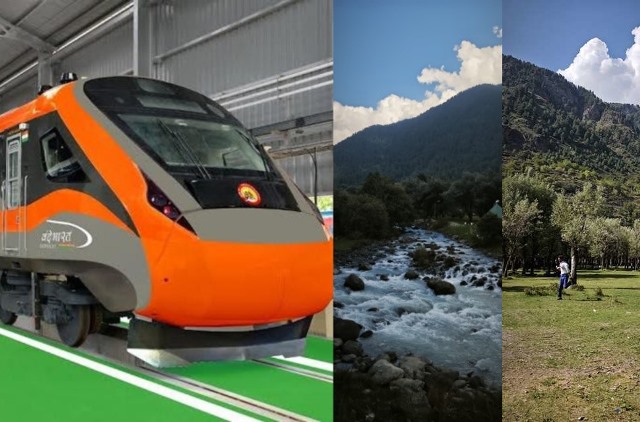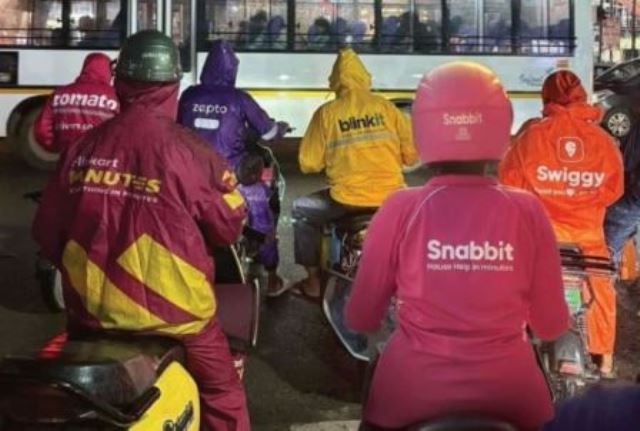
‘Kashmir Vande Bharat Is A Welcome Step; But Many More Miles To Go’
Irat Bhat, a student from J&K pursuing her post-graduate degree in Aligarh Muslim University, says the new Vande Bharat rail link has been met with enthusiasm from Kashmiris. Her views
Will the all-weather Katra-Srinagar rail link help the people of Jammu and Kashmir? Yes. Absolutely. The completion of the rail link is a monumental development for Jammu and Kashmir. This all-weather connectivity is poised to significantly reduce travel time between Katra and Srinagar, cutting it from over five hours to approximately three. This improvement is especially beneficial for students and low-income travelers who often resort to expensive air travel or endure long, arduous bus journeys due to the frequent closure of the Jammu-Srinagar highway caused by landslides and weather conditions.
From a personal standpoint, I had eagerly awaited the commencement of this train service. However, by the time it began operations, I had already returned home. The delay in its launch affected my travel plans, compelling me to reroute my journey. Nonetheless, I believe this rail link will bring much-needed relief to many, offering a safer, more affordable, and efficient mode of transportation.
The sentiment among Kashmiris regarding the rail link is generally positive. The introduction of the Vande Bharat Express on this route has been met with enthusiasm, as evidenced by the overwhelming demand, with all seats booked for the first ten days of its operation.
As a Kashmiri who has traveled extensively by train across India and within the Kashmir Valley, I can attest to the comfort and safety of train journeys. However, during periods of instability, such as the recent tension between India and Pakistan, many of my peers and I opted against train travel due to safety concerns. Instances of harassment and discrimination faced by Kashmiris during such times have made us cautious about our travel choices.

Whether I will travel on this train in the future largely depends on the prevailing political and security situation. In times of peace and stability, I look forward to utilizing this service.
ALSO READ: ‘It Is Tough To The Wife Of A Kashmiri Policman’
The inauguration of the rail link was indeed a significant event, symbolizing progress and development. However, for many Kashmiris, the celebration of such milestones can feel disconnected from the realities on the ground. The region has faced numerous challenges, including restrictions on media freedom and the stigmatization of its people, especially students, in the aftermath of tragedies like the Pahalgam killings in which innocent tourists were killed by terrorists who escaped. Indeed, local citizens pitched in immediately and whole-heartedly to help the families, gave them shelter and food, and helped them reach their destinations safely.
While infrastructure development is essential, it is equally important to address the underlying issues of human rights, freedom of expression, and the well-being of the people. A balanced approach that considers both development and the restoration of rights would foster a more inclusive and harmonious environment in the entire state.
Public transportation in Jammu and Kashmir, particularly in high-altitude regions like Ladakh and Kargil, has historically been a challenge. The difficult terrain, coupled with frequent road blockages due to landslides and snow, has made commuting arduous over the years.
I recall an instance when I was stranded for over six hours on the Jammu National Highway due to a landslide. What should have been a morning’s journey extended into an entire day’s ordeal.
However, there have been positive developments. For instance, the introduction of electric buses in Kargil aims to provide eco-friendly and reliable transportation options. These initiatives are steps in the right direction, but there is still much to be done to ensure seamless connectivity across the region.
As told to Amit Sengupta



